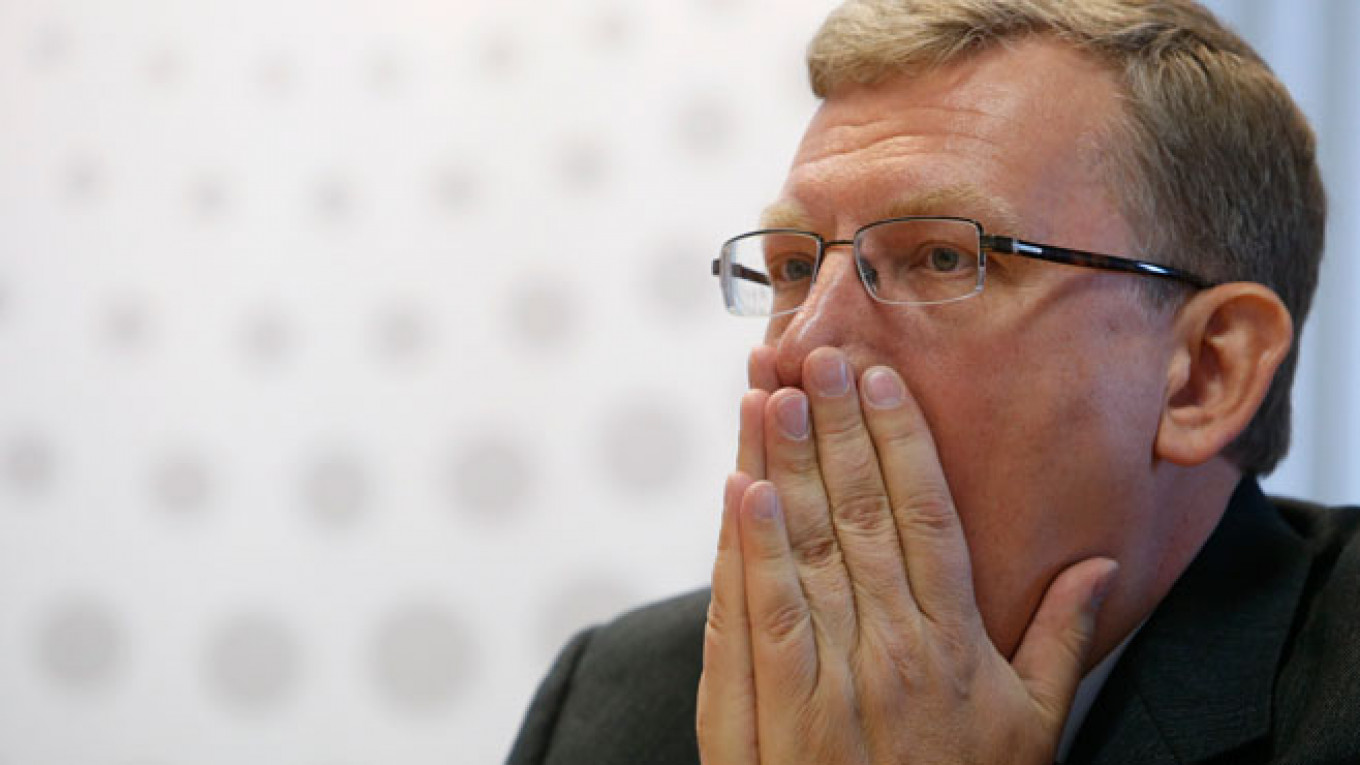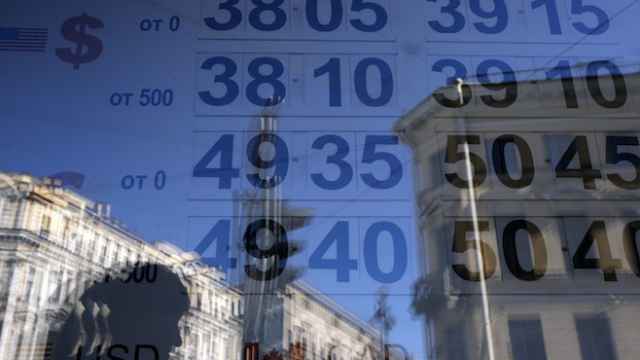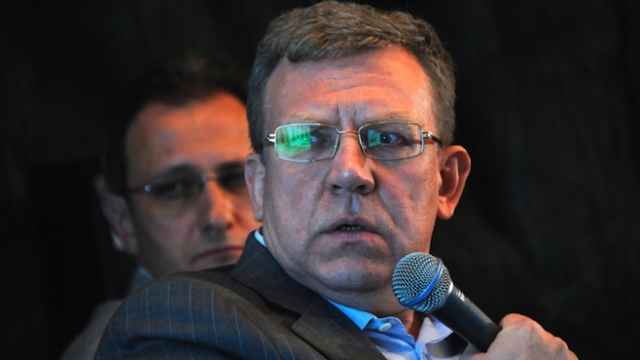Russia faces years of stagnation because of the Ukraine crisis and is ducking decisions needed to achieve a new economic model, former finance minister Alexei Kudrin said Monday.
Kudrin, a long-time ally of Russian President Vladimir Putin, is one of the weightiest figures questioning government policy at a time when Russia is feeling the economic chill from confontation with the West over Ukraine.
A leading 'liberal', he shepherded Russia's finances for over a decade before resigning in 2011 in a row over rising government spending.
"There will be stagnation, like now. There could be recession. We will be balancing on the edge of recession all the time," he said, adding there would need to be a "renewal" of the government to achieve change.
Even if Western sanctions were not intensified further, he said, economic growth would be 1 percent lower than it would have been for at least three years. Russia also faces isolation from global market institutions for a similar length of time.
His predictions, which contrast with more optimistic official forecasts, will be sobering for investors hoping that the end of a conflict in eastern Ukraine would also mean an easing of Russia's economic problems.
Kudrin told the Reuters Russia Investment Summit that depressed economic growth will be exacerbated by isolation from global markets. He expected that it would be years before Russia was able to borrow again on global financial markets. "I think that two to three years — this is the minimal time," he said.
Another case in point is Russia's attitude to the World Trade Organization, which it joined in 2012, prompting hopes of economic liberalization. "Russia in essence will temporarily not observe the rules of the WTO," he said.
"I'm afraid that we'll have an exclusionary regime for more than one year. I think it will happen for several years and it will be difficult to return."
Failed Model
Although the Ukraine-related sanctions are set to weigh heavily, Kudrin said they were not the major reason why Russian economic growth was now stalling.
"Today the decline of Russian economic growth is not so much the result of sanctions as of the lack of reform of the economic system, at a time when the oil price is not rising but falling. We need another economic model," he said.
Whereas the oil price rose steadily during the previous decade, the price has now peaked and is likely to keep falling over the years ahead, Kudrin predicted.
One result, he warned, is that within three or four years Russia would see a fall in its oil-and-gas tax revenues equivalent to around 1.5-2 percent of economic output ($30-40 billion) per annum.
To compensate for these trends, Russia needs to develop new oil-and-gas resources in the Arctic and Far East as quickly as possible, he said. But Western sanctions mean that the process will be slower and more difficult than otherwise, restricting Russian oil companies' access to needed Western technologies.
Kudrin said that while it was correct to involve Asian partners, they were so far an inferior substitute for Western oil companies which possessed the most relevant technologies.
More generally, developing economic ties with Asian countries could only go so far in substituting for relations with the West. China, he said, was weak at innovation and lacked many sectors important to Russia.
"We could make a mistake if we only see a Chinese [policy] vector," he said. "We need to understand that for at least 20-30 years we will continue to receive basic technologies from the West."
New Model
To create a new economic model, Kudrin reiterated his calls for liberalizing economic reforms, which he said also required a "renewal" of the government.
Failure to introduce long-discussed reforms was a sign that the government lacked both political will, and people capable of introducing reforms, Kudrin argued.
As an example of what was needed, he said that around 6 percent of gross domestic product spent on subsidies should be redirected to areas such as infrastructure investment.
The government also needed to break generous spending promises — known as the "May decrees" — made by Putin after his 2012 election.
"The decrees need to be corrected, because we're in a special situation," he said. "The economy can't stagnate and policy continue as if nothing had changed."
Instead of facing up to the new realities, a three-year budget approved this month lacked needed reform measures, showing that the government was ducking hard decisions.
"On key matters the government hasn't taken decisions, and that's worrying," he said.
Kudrin said that, despite the repercussions of the Ukraine crisis, he was confident Putin was committed to economic reform in the long term, with no desire to turn Russia into a closed economy.
"But the sequence of events has made it necessary for the time being to carry out in some areas a temporary form of isolation or distancing," he added.
Describing the political and business elite as "extremely troubled", he said: "They think that yes, perhaps in these circumstances one needs to act the way Putin acts. But we don't understand what will happen in terms of developing our society and the Russian economy in the coming years."
A Message from The Moscow Times:
Dear readers,
We are facing unprecedented challenges. Russia's Prosecutor General's Office has designated The Moscow Times as an "undesirable" organization, criminalizing our work and putting our staff at risk of prosecution. This follows our earlier unjust labeling as a "foreign agent."
These actions are direct attempts to silence independent journalism in Russia. The authorities claim our work "discredits the decisions of the Russian leadership." We see things differently: we strive to provide accurate, unbiased reporting on Russia.
We, the journalists of The Moscow Times, refuse to be silenced. But to continue our work, we need your help.
Your support, no matter how small, makes a world of difference. If you can, please support us monthly starting from just $2. It's quick to set up, and every contribution makes a significant impact.
By supporting The Moscow Times, you're defending open, independent journalism in the face of repression. Thank you for standing with us.
Remind me later.






